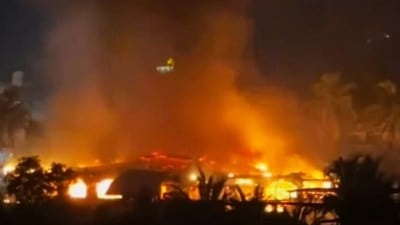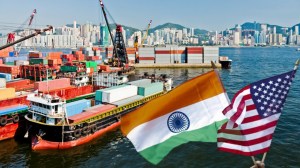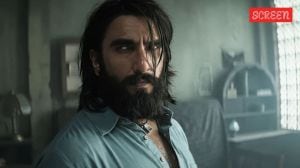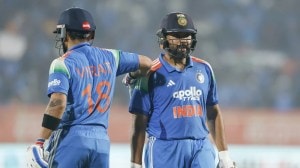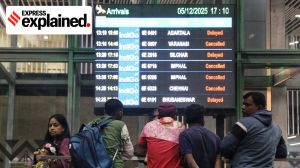Whats happened in Kashmir opens a window of opportunity… take stock of reasonable concerns
As President of South Africa,<i>F W de Klerk </i>worked with Nelson Mandela to dismantle the apartheid system in the countrythe two jointly received the 1993 Nobel Prize for Peace. In this Walk the Talk on NDTV 24x7 with with The Indian Express Editor-in-Chief <i>Shekhar Gupta</i>,de Klerk talks about the transition years and the road ahead for South Africa
Shekhar Gupta: My guest today is F W de Klerk of South Africa,the man who shaped history and altered the course of the future,not just for South Africa but for the world in a way. With Nelson Mandela,he built peace and reconciliation in South Africa that nobody could have dreamt of,which ended apartheid and produced brilliant,multicultural,multiracial premonitions. Its wonderful. Real statesmanship is built by giving up something. In a way,you gave up power. Reality,at times,demands that a leader takes initiatives. And the reality in South Africa was that we were facing what could have become a catastrophe. And the leadership was called upon to ask ourselves what we could do to ensure that we do justice to all on the one hand,and on the other hand,that we end a violent conflict. That was the situation which I faced when I became president. That was the situation in the last five years even before I become president. On the other hand,the African National Congress (ANC) faced exactly the same question. They came to the realisation that in this conflict,they could not win. I had in my mind already decided that everybody in South Africa must have equal political rights,that all forms of discrimination must go. But we needed to replace the old apartheid regime with a regime which would uphold the values of the rule of law and of real democracy,of liberalism. And the only way to do that would be for former enemies to sit around the same table and to face each other.
Shekhar Gupta: How difficult was it?
F W de Klerk: Initially,it was not all that difficult. Difficult,I feel,is the wrong word. Actually at the end of the first intensive discussion that took place in April 1990,all of us came away and said to each other and to the media that we found out we agreed more than we disagreed and suddenly we humanised our relationship. The very first meeting that Mandela and I had was in December 1989. He was still in prison but he was very well looked after. He was brought to my office,which later became his office. We met and we didnt discuss anything of real substance that day but both of us would write afterward in our respective autobiographies that we sized each other up. I thought I could do business with this man. The same happened when the two groups came together in April 1990. So quite soon,a sort of trust developed,and this to my mind was the essential element of our successful negotiations.
Shekhar Gupta: The sacrifice on ANCs side was that of anger and resentment; the sacrifice on your side,the white population,was complete loss of power maybe for a very long time.
F W de Klerk: I will differ with you on your analysis. The sacrifice from our side was not complete loss of power but yes,we would lose the exclusive reins to power which we held on an ethnic basis. The sacrifice from their side went further than giving up their anger. They moved from nationalisation to privatisation in the process. They moved from takeover of power to a form of sharing of power. And to this day,from the white side,there are those who say I gave the country away. They call me a traitor. And from the ANCs side,there are elements who say President Mandela gave away much too much and made too many sacrifices in the process of negotiation.
Shekhar Gupta: It is fascinating how often the word traitor is used in South Africa in political arguments. Just as in India we say so and so is corrupt or so and so is a thief. The word,traitor,has somehow become part of the political lexical. In fact,my first insight into South Africa was a book called My Traitors Heart by Rian Malan.
F W de Klerk: It was traitor to old causes. But the old causes were destined to end in tragedy. Therefore,all of us had to relinquish our typical old causes and adapt to the demands of the moment. For me,that is my driving force. The necessity to build the future of justice for all,for my people,the Afrikaans,not just whites. We were a special group of people. We fought the first anti-colonial freedom war more than a hundred years ago against the British Empire in South Africa.
Shekhar Gupta: Are there lessons which we can learn from South Africas experience or your experience?
F W de Klerk: I think not only India,but many countries can learn some lessons from us. But every situation is different. I dont think we have a sort of a package deal which can be used in another country. But some of the basics would include the following: People who are enemies cant make peace unless they talk to each other. When you negotiate,you cant negotiate and select who will sit on the other side of the table. You must negotiate with people who have a real constituency,who have a majority behind them. The third,which I think is of international application,is the importance of using the window of opportunity which history offers you. It is a challenge for the leader to see the window of opportunity before it is shuts again. You only have one or two chances to go through that.
Shekhar Gupta: Some of us in India would say that window of opportunity came when General Musharraf became a bit reasonable. And then suddenly it was gone.
F W de Klerk: That is true,but new windows can open. I am not an expert in your affairs but it appears to me as if what has happened recently in Kashmir opens a window of opportunity because I heard voices saying now is the time to take stock of the reasonable concerns of the people. That creates an atmosphere to say let us go to the root cause of the problem rather than dealing with the results and the symptoms.
Shekhar Gupta: You are now a peace doctor,a reconciliation doctor.
F W de Klerk: I try to be. I started a foundation called the Global Leader Foundation. We now have now 28 former prime ministers,ministers,very senior United Nations diplomats. All have had vast experience of governance,of settlement of disputes. All have made mistakes,they have burnt their fingers. They have learnt some lessons from it. What this foundation does is to interact with governments,especially in the developing world,who can benefit from objective advice. We are non-profit,so we dont charge fees. We give discreet,confidential advice. There is no loss of face for a leader that we advise. We dont come in with two TV teams saying we are here,you need good advice.
Shekhar Gupta: So,theoretically,if India and Pakistan want your help,you would give it not like a third party interventionist.
F W de Klerk: We dont represent anybodys interest. We dont hold the mandate for anybody. For that reason,when we fund ourselves through donations,we dont have big sponsors giving us a million or half a million. We have small sponsors so that no one can accuse us of representing anybodys specific interests.
Shekhar Gupta: Going back to South Africa,I heard your speech recently,where you used the story of Cinderellawhere you said the fairytale is overmeaning the World Cup is over,and Cinderella is back sitting on the aisle in the kitchen.
F W de Klerk: But I also added that there is a silver lining. That South Africa has a better image now. It has better infrastructure and hopes of further growth in tourism which is the fastest growing element in our economy. But yes,we are struggling with serious problems. The governing party has big fights within itself. Certain elements want to threaten media freedom,they want a media tribunal,they want protection of information.
Shekhar Gupta: Yes,you have a terrible press law coming up that can describe anything as national interest.
F W de Klerk: Yes,and they must step back from that. Civil society is saying this will undermine the democracy that we negotiated. They (the government) are coming up with proposals,which if implemented,would undermine the very essence of private property ownership. They are interfering with the basic flow of a free-market economy. Look at the worldall the experiments which have been undertaken,with socialism,with communism,resulted in greater poverty and failure. Capitalism,on the other hand,has also failed because in the end it did not benefit the poor. The answer lies in a balance. But essentially,you need to have a free market,so that those who make investments can make their profits,so that they will make more investments,so that they will create jobs.
Shekhar Gupta: President Zuma was in India recently. He was so effusive of the India-South Africa relationship,but looking at it from here in India,when you say India-South Africa,you usually think cricket. Is there lot more happening,should a lot more happen?
F W de Klerk: I am very happy that we have a good relationship. The fact is when we deal with India,we are dealing with one of the two most bright,upcoming,new economic world powers and when India deals with South Africa,they are dealing with the strongest country in sub-Sahara Africa. They are dealing with a country with tremendous potential. If they (India) strengthen their relationship with South Africa,they are walking through the portal to the whole of sub-Saharan Africa. Therefore,there are mutual benefits for India and South Africa to further strengthen their ties. There is good business to be done.
Shekhar Gupta: Tell me a little about President Zuma.
F W de Klerk: I never knew President Zuma closely during the negotiations. But the little I knew of him then and what I got to know of him afterward,shows to me that he is a man of the people,a very human person. He has lots of warmth in him.
Shekhar Gupta: You know,in your political career you have held almost all portfolios that matter to India right nowinternal affairs,energy,mines,education. There is one issue which is very current to India right now where South Africa has more experience than anybody and that is mining. People versus corporations,local people,displacement,mining profits,windfall profitsyou have dealt with all that before. Do you have some advice for us?
F W de Klerk: Well,the first thing is to have laws to assure the prevention of corruption. And we have a good record in South Africa. You had to to comply with certain prerequisites,the guarantee of the licence was done by the bureaucracy and not by politicians.
Shekhar Gupta: Was it like an auction?
F W de Klerk: No,we had tenders. And then we have fairly sophisticated laws governing the inherent conflicts between the rights of the surface owners and the rights of the mineral owners. In order to mine,the mining company needs to compensate,in one way or another,the surface owners who have their homes etc there and give them an interest. We have examples where the mining company pays a royalty to one of our black tribes called the Baule and they get a royalty from all the products from that platinum mine. And they have a proper structure of how to use that income to the best benefit of all members of that tribe. So,that is one formula which we have applied successfully in South Africa.
Shekhar Gupta: But the key to all this is a transparent and clean allotment process.
F W de Klerk: Absolutely.
Shekhar Gupta: The fear that many people express now is that you could become,or we could become,like Russia with ten families or twenty families or twelve families or one family,controlling everything.
F W de Klerk: That must be avoided at all costs. In South Africa,the state benefits not in the sense of getting paid,but in the sense that if a mining operation becomes successful,they pay taxes and a big part of our tax base is from mining operations,but licences arent for sale.
Shekhar Gupta: Let me come back to the question that I raised earlier in this interview. Are you an Afro-pessimist or an Afro-optimist? What do you think the future of South Africa is?
F W de Klerk: I am an Afro-optimist. I am concerned,but I am not a pessimist. I believe we have the capacity to manage the remaining challenges,and they are big challenges: in education,in health,bringing down crime dramatically. But we have the capacity to do so and I think our biggest asset in South Africa is a wonderful goodwill amongst the overwhelming majority of all the peopleblack,white,Indian and coloured South Africans. They all want the country to succeed. There is a will,a political will,but also a will amongst the population that we must fulfill our capacity,our possibilities,and for that reason I remain an optimist. I am very active in civil society to ensure that we dont take wrong turns.
Transcribed by Basudha Das
- 01
- 02
- 03
- 04
- 05


